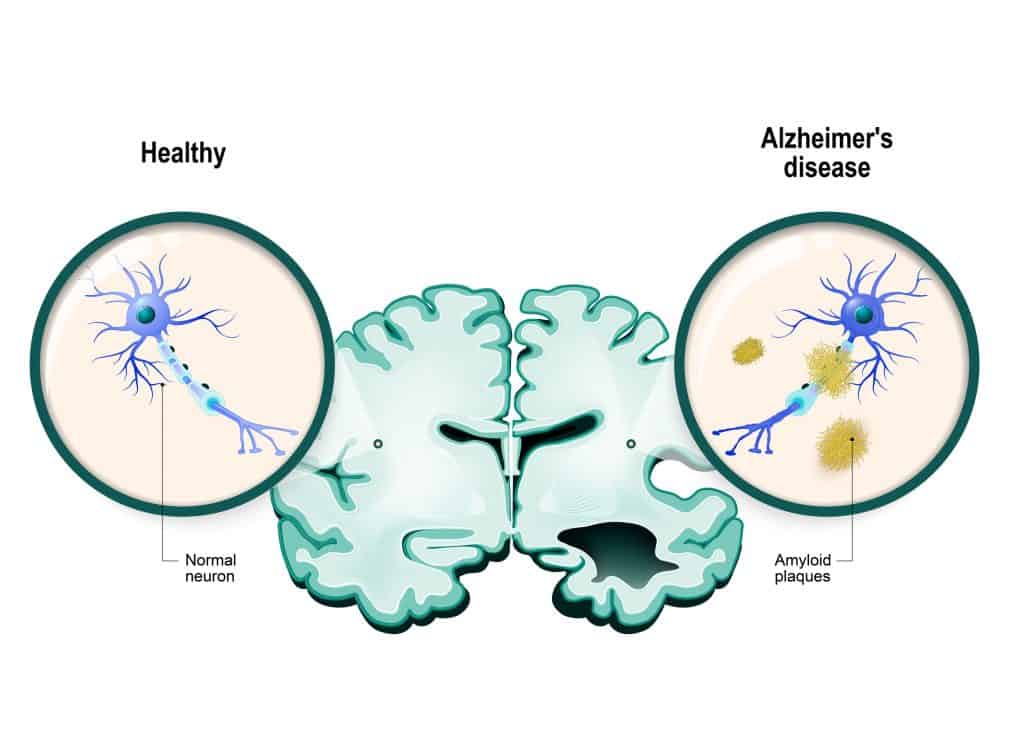Are Diabetes and Alzheimer’s Linked? The Risks and Prevention
Posted by Prescription Hope - See Editorial Guidelines (Last Updated On: Fri Apr 21 2023)
Alzheimer’s and diabetes are the 6th and 7th leading causes of death in the U.S, respectively. With so many people suffering from these two illnesses, researchers are discovering a potential link between diabetes and Alzheimer’s. Before getting into all of the details, we’ll provide you with a brief explanation. Are Diabetes and Alzheimer’s Linked? Diabetes has the potential to affect many different organs throughout the body, including the brain. This occurs more so if a person’s blood sugar levels are uncontrolled. Studies have suggested that individuals with type 2 diabetes are more likely to develop Alzheimer’s. The exact cause of Alzheimer’s is not fully known, but scientists do know that uncontrolled blood sugar levels from diabetes can cause damage to the brain. Now that you have a brief understanding, we will get into the details of the link between diabetes and Alzheimer’s.
Diabetes and Alzheimer’s Defined
 Alzheimer’s is a degenerative brain disease and is the most common form of dementia. The cause of Alzheimer’s is not clearly known, but it is marked by the degeneration of brain neurons, particularly in the cerebral cortex. This disease is normally diagnosed at an old age and results in memory loss, changes in mood and behavior, and impaired thinking.
Diabetes is a condition where either the body’s cells are not responding properly to insulin, or there is a lack of insulin production. This results in elevated blood sugar levels, which can be cause major complications. There are different types of diabetes that including type 1, type 2, and gestational diabetes. Type 1 is an autoimmune disorder, and lifestyle factors generally cause type 2.
Diabetes and Alzheimer’s are both terrible diseases that can lead to death.
Alzheimer’s is a degenerative brain disease and is the most common form of dementia. The cause of Alzheimer’s is not clearly known, but it is marked by the degeneration of brain neurons, particularly in the cerebral cortex. This disease is normally diagnosed at an old age and results in memory loss, changes in mood and behavior, and impaired thinking.
Diabetes is a condition where either the body’s cells are not responding properly to insulin, or there is a lack of insulin production. This results in elevated blood sugar levels, which can be cause major complications. There are different types of diabetes that including type 1, type 2, and gestational diabetes. Type 1 is an autoimmune disorder, and lifestyle factors generally cause type 2.
Diabetes and Alzheimer’s are both terrible diseases that can lead to death.
Who is at Risk for Diabetes?
Since type 1 diabetes is an autoimmune disorder, the exact cause of it is not clear. However, evidence suggests that those with a family history of diabetes may be at an increased risk. On the other hand, type 2 diabetes is primarily contributed to lifestyle habits and factors. Individuals that are overweight or obese may have the highest risk of developing type 2 diabetes. This is due to excess weight around the mid-section leading to insulin resistance. A person’s diet and physical activity are major tell-tale factors if a person will become obese. Those that eat large meals containing higher amounts of carbohydrates and added sugars are more likely to experience weight gain. Inactivity or people with sedentary lifestyles are also more likely to gain weight. Family history may also be a risk factor for type 2 diabetes. Many individuals in America have prediabetes yet are unaware of it. If you have prediabetes and know about it, then you have a chance to course-correct your lifestyle to prevent you from getting full-blown diabetes.Who is at Risk for Alzheimer’s?
Researchers have not determined one exact cause of Alzheimer’s, but rather it is believed there are multiple risk factors. These risk factors for Alzheimer’s include a person’s genetics, lifestyle, and environment. The greatest risk factor is a person’s age. Most people battling with Alzheimer’s are older than 65, and the risk of this disease doubles every five years after the age of 65. Family history and genetics are also major risk factors for Alzheimer’s. If one of your family members has or has had this disease, then you are at an increased risk. Genes are also involved. A person’s genes can also determine if they are at an increased risk. Other risk factors may include head injury or brain trauma. There is evidence of repeated head injuries leading to dementia and CTE. Heart-related issues may be another problem leading to Alzheimer’s. The brain requires the heart to pump blood through major blood vessels to get nourished. If the heart or blood vessels are damaged or aren’t supplying enough blood to the brain, then Alzheimer’s may be more likely to occur.What is the Link Between Diabetes and Alzheimer’s?
Both diabetes and Alzheimer’s are complex health conditions, and researchers have sought to find a link between the two, as many have suggested that people with type 2 diabetes are at an increased risk for Alzheimer’s. It is believed that each condition may fuel the severity of damage caused by the other. For example, Alzheimer’s may cause the blood sugar levels of a person with diabetes to be more uncontrolled. This may be due to an Alzheimer’s patient forgetting to check their blood sugar or forgetting to take their needed medication. One clear connection between diabetes and Alzheimer’s has to do with the blood being supplied to the brain for nutrients. Diabetes and uncontrolled blood sugar levels damage blood vessels over time and can reduce the blood flow to certain parts of the body. Reduced blood flow to the brain is known as vascular dementia.
Before a person has Alzheimer’s, they may experience mild cognitive impairment. This is a condition where people experience thinking and memory issues. Mild cognitive impairment may develop at a younger age in a person that has diabetes.
On the other hand, Alzheimer’s may cause a person’s diabetes to be more uncontrolled in many ways. One way is due to plaque buildup from pieces of proteins called beta amyloids, which are present in the brain of people with Alzheimer’s.
This plaque buildup in the brain blocks insulin receptors in the brain and prevents the receptors from performing correctly. The result of this is cells becoming resistant to insulin, and even insulin production may be impacted.
One clear connection between diabetes and Alzheimer’s has to do with the blood being supplied to the brain for nutrients. Diabetes and uncontrolled blood sugar levels damage blood vessels over time and can reduce the blood flow to certain parts of the body. Reduced blood flow to the brain is known as vascular dementia.
Before a person has Alzheimer’s, they may experience mild cognitive impairment. This is a condition where people experience thinking and memory issues. Mild cognitive impairment may develop at a younger age in a person that has diabetes.
On the other hand, Alzheimer’s may cause a person’s diabetes to be more uncontrolled in many ways. One way is due to plaque buildup from pieces of proteins called beta amyloids, which are present in the brain of people with Alzheimer’s.
This plaque buildup in the brain blocks insulin receptors in the brain and prevents the receptors from performing correctly. The result of this is cells becoming resistant to insulin, and even insulin production may be impacted.
Reducing Your Risk
When it comes to reducing your risk for diabetes and Alzheimer’s, you should strive to live the healthiest lifestyle possible. Based on our understanding, your heart and blood vessels are vital for supplying your brain with proper nutrients, and possibly reducing your risk for Alzheimer’s. Therefore, taking care of your heart and your diabetes first, will, in turn, help reduce your risk for Alzheimer’s. Staying physically active and eating the right foods will help control your blood sugar levels, which helps keep your blood vessels healthy. Those with diabetes must take the proper medication prescribed by their doctor also. Some patients may need insulin, and others may require oral medications. Individuals with diabetes should make sure they are eating plenty of fruits, vegetables, lean meats, and whole grains. This will ensure that you are getting the right nutrients. By avoiding foods that are high in added sugars and unhealthy fats, you are managing your diabetes properly and helping your blood vessels remain healthy. Other ways to reduce your risk of diabetes and Alzheimer’s complications include:- Not smoking
- Exercising at least 30 minutes daily
- Take your proper medications
- Treat any sores or wounds you have
- Monitor your blood sugar daily

